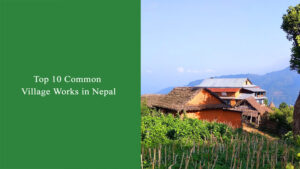Get 70+ Important questions for LLB Entrance Exam
Bachelor of Laws
LLB is a bachelor’s degree in law of 3-5 years duration. There are large numbers of colleges in Nepal which offers LLB course.
Some of these are Nepal Law Campus, Butwal Multiple Campus, Mahendra Bindeshwari Multiple Campus, and Kathmandu University School of Law, Prithvi Narayan Campus, and Mahendra Multiple Campus, etc.
In Nepal, all of the students who have completed their bachelor’s degrees can study LLB. But they should participate in the entrance exam.
In the entrance exam of LLB, students can write answers either in English or in Nepali medium.
Are you looking for possible LLB entrance questions?
Here are 70+ most important questions for LLB (Bachelor of Laws) entrance in Nepal. These questions were collected with the help of questions papers that were asked in the past few years.
- What is the written constitution? Differentiate between written and unwritten constitutions.
- Point out the salient features of the Constitution of Nepal (2072).
- What do you mean by fundamental rights? How do fundamental rights differ from legal rights? Explain.
- What are the policies of the state in the Constitution of Nepal? Compare directive principles with fundamental rights?
- Discuss the role of the President in the Constitution of Nepal?
- What do you mean by law? Explain the importance of law in modern society.
- What are the sources of Law? Discuss.
- “Law is the command of the sovereign”. Discuss.
- Make a short note on the person. Differentiate between the natural and juristic person.
- What do you mean by Justice? How do law and justice are related to each other? Explain with suitable illustrations.
- What do you mean by possession? Explain.
- Discuss on main features of the Constitution of Nepal.
- Point out fundamental rights guaranteed by the Constitution of Nepal (2072).
- What do you mean by Constitution? How does the Constitution differ from other (general) laws?
- Critically analyze the formation of the Council of Ministers of Nepal as stated in the existing Constitution.
- Define the separation of power and check and balance.
- What do you mean by property? What are the modes of acquisition of property?
- Define federalism. How it is differing from the unitary system?
- What do you mean by Jurisprudence? What are the major schools of Jurisprudence?
- Define ownership. Show the relationship and differences between ownership and possession.
- “Rights and duties are two sides of the same coin”. Discuss.
- Explain the differences between a legal person and a natural person.
- Law is an important instrument of social change. Do you agree? Explain.
- What do you mean by law? Discuss its various sources.
- Explain the concept of the Rule of Law.
- What do you mean by fundamental Rights? Explain the Fundamental Rights provided by the existing constitution of Nepal.
- What do you mean by Federalism? How is the Federal system distinct from the unitary system?
- Discuss the Extra-Ordinary Jurisdiction of the Supreme Court of Nepal.
- “Ignorance of the law is no excuse.” Explain the principle.
- What are the features of the State of Nepal stated under Article 4 of the Constitution of Nepal?
- Point out the basic elements of the national interest mentioned in the Constitution of Nepal.
- What is the freedom guaranteed by the constitution of Nepal?
- List the three sources of constitutional law in priority order.
- What is the purpose of the Writ of Mandamus?
- What do you mean by judicial review of administrative action? Explain.
- Point out the composition of the Judicial Council under Article 153 of the Constitution of Nepal.
- What are the three qualifications to become President under Article 64 of the Constitution of Nepal?
- President is a nominal head and it acts on the advice of the Cabinet (Council of Ministers). Explain why?
- Write a short note on the Right to Social Justice enunciated in Article 42 of the Constitution of Nepal.
- What do you mean by Jurisprudence? Briefly discuss.
- Differentiate between law and morality.
- Custom is a source of law. Briefly explain.
- What are the components of principles of natural justice? Briefly mention.
- Write short notes on the legal person.
- Show differences between vested and contingent rights.
- “Property is nothing but a bundle of rights.” Explain.
- Show the differences between the natural and analytical schools of Jurisprudence.
- What are the various sources of law?
- What is precedent? Mention its role as a source of law.
- “Rights and Duties are co-relative” Justify.
- Briefly discuss the concept of property.
- What is the person? Discuss the legal status of the dead person.
- Discuss the concept of Feminism.
- “Law is an instrument of Social engineering” Clarify.
- Why law is considered essential in every society?
- “Jurisprudence is considered an Eye f Law” Clarify.
- What is executive power? Where is it vested in Nepal?
- Define the constitution and discuss its importance.
- How Election Commission of Nepal is composed? Explain.
- Discuss the extraordinary jurisdiction of the Supreme Court of Nepal.
- How is Federal Parliament composed in Nepal?
- Describe in brief the concept of rule of law.
- What are the Constitutional Provisions for the election of President in Nepal?
- Describe in brief the constitutional development in Nepal.
- Define Jurisprudence?
- “Rights and Duties are co-relative” Justify.
- What are the components of principles of natural justice? Briefly mention.
- Explain the main characters of the Realist school of law.
- What do you mean by person? State the types of person.
- Why constitution is regarded as the main law of the land? Explain.
- Write short notes on the following;
- Right and duty
- Dissolution of House of Representative
- Natural justice
- Custom
- Ownership
I hope this article helped you to find out the most possible questions for LLB entrance.






